Speaker Bios
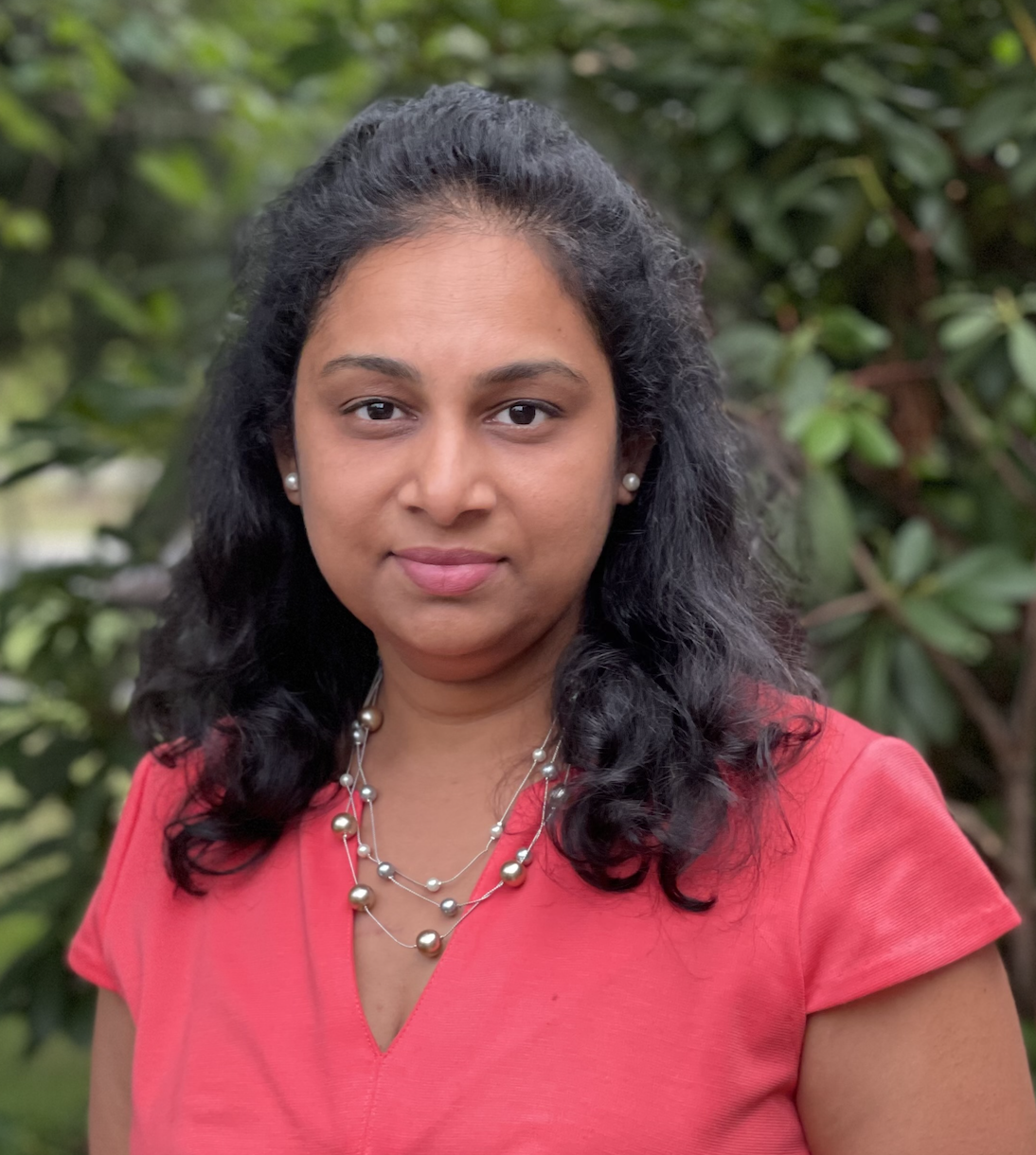
Dr.Addepalli is a Health Scientist/BioMedical Informatics Program Manager at National Cancer Institute (NCI) in the Center for Biomedical Informatics & Information Technology (CBIIT) and has been working with NCI since 2005. She is the Federal Lead on the Cancer Data Service, a component of CRDC eco-system with focus on enabling accelerated data management and secure sharing of the valuable cancer research data. She also leads the cancer Nanotechnology project which is designed to facilitate information sharing across the international biomedical nanotechnology research community to expedite and validate the use of nanotechnology in biomedicine. She leads and runs the NCI’s Containers and Workflows Interest Group (CWIG) webinar series. She represents CRDC as an SME on various other CBIIT projects. She has a doctoral degree in Computational Biology and Bioinformatics.
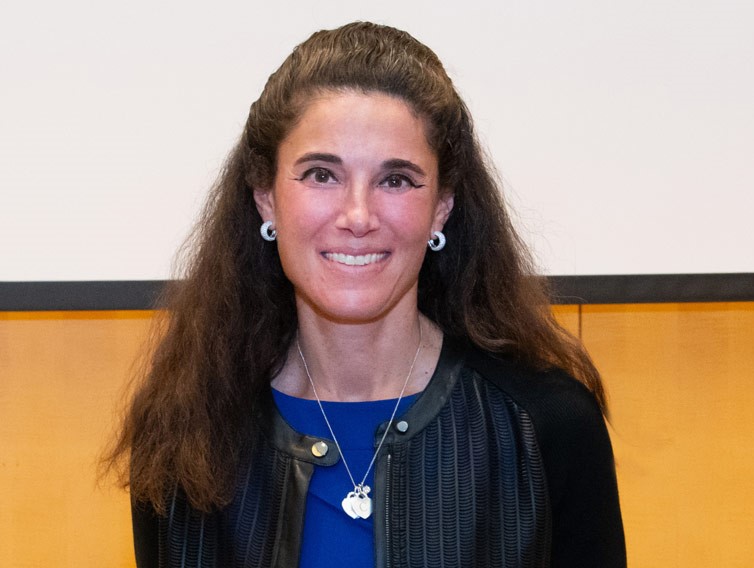
Dr Barnholtz-Sloan is Acting Director of NCI Center for Biomedical Informatics and Information Technology (CBIIT) and Associate Director for Informatics and Data Science (IDS) Program in CBIIT. She leads CBIIT's efforts to shape data science, data sharing, and technology strategies, with the ultimate goal of fostering collaboration within NCI and across NIH and the cancer research community. In addition, she also maintains a robust research agenda in descriptive epidemiology and etiology of brain tumors as an intramural NCI researcher in NCI’s Division of Cancer Epidemiology and Genetics (DCEG), Trans-Divisional Research Program (TDRP). Blending these two unique perspectives, as an active researcher and administrator, this gives her unique insights into how data can be translated into real-world solutions to help diagnose, prevent, and treat cancer. Dr. Barnholtz-Sloan is a nationally and internationally recognized leader in the fields of cancer informatics and data science and is multi-disciplinary trained in biostatistics, epidemiology, and human genetics. She holds her Ph.D. in Biostatistics from the University of Texas Health Science Center at Houston (UTHealth) School of Public Health and an M.S. in Statistics from the University of Texas at Austin B.S., Mathematics, University of Florida.

Erin Beck is a Health Scientist Administrator working on the Cancer Research Data Commons (CRDC) at the National Cancer Institute (NCI) in the Center for Biomedical Informatics & Information Technology (CBIIT). She is the Federal Lead for their 3 Cloud Resources as well as their infrastructure component, the Data Commons Framework. Her focus is on data democratization within the Cancer Research community and finding ways to lower the barriers to entry to the CRDC’s cloud resources. She has her M.S. in Bioinformatics from The Johns Hopkins University. Before coming to the NCI she worked as an bioinformatician and data scientist at the National Center for Advancing Technologies and the J. Craig Venter Institute.

Amanda Borens is an independent data science consultant and the founder of Tesselate Data Consulting. She has 25+ years of experience in the public and private sectors, focused on the data science integral to the development of therapeutics and devices. Her work is informed by her experience as a cancer patient, especially by her frustrations with silos between research and real-world/clinical data and barriers to interoperability. She seeks to accelerate secure sharing of complex, large scale data to improve treatment and outcomes.

Dr. Esmeralda (Emi) Casas-Silva is a Program Director at the National Cancer Institute's (NCI) Center for Biomedical Informatics and Information Technology (CBIIT). Where she leads efforts to improve access to and sharing of clinical study data as the Federal Lead for the Clinical and Translational Data Commons (CTDC), helping researchers better leverage these resources for scientific discovery.
Recognizing patients as essential contributors to cancer research, Dr. Casas-Silva has led efforts at NCI to champion their involvement in clinical trials. This has included leading participant and provider engagement efforts for the Cancer Moonshot Biobank, and spearheading NCI’s Clinical Trials and Social Media Workshop to improve communication around clinical trials and increase public understanding and participation. The workshop resulted in the creation of a plain language guide for use in clinical trials across the nation, and the establishment of a Clinical Trials and Social Media Working Group at NCI.
Understanding the immense potential of artificial intelligence (AI) to advance cancer research, Dr. Casas-Silva has been actively involved in efforts to integrate AI into NCI's mission. She helped organize CRDC's Artificial Intelligence Data Readiness Challenge to gather community feedback on to improve CRDC data for AI-driven research. Additionally, she contributes to shaping AI policies at the national level through her work with the U.S. Department of Health and Human Services (HHS) Healthcare Service Delivery Working Group, helping inform HHS AI strategies in response to the White House Executive Order on the Safe, Secure and Trustworthy Development and Use of Artificial Intelligence.
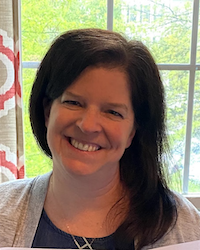
As a CBIIT Program Officer within the Data Ecosystems Branch, I ensure that data across the NCI Cancer Research Data Commons (CRDC) adheres to the FAIR guiding principles for scientific data management. Prior to joining NCI, I spent over 15 years developing and managing data repositories for NIH-funded projects such as the Human Microbiome Project (HMP, iHMP) and the Brain Research Through Advancing Innovative Neurotechnologies (BRAIN) Initiative.
Currently I lead the CRDC Data Standards Services team developing standards to enable interoperability across CRDC data repositories, the CRDC Cancer Data Aggregator team harmonizing data from across the CRDC data commons into common language terms, and the working group guiding development of the new CRDC Population Sciences Data Commons. In addition, I serve as a Driver Project Champion to the Global Alliance for Genomics and Health (GA4GH) and co-chair a Trans-NIH GA4GH Working Group to increase knowledge of GA4GH standards across NIH institutions.
Dr. Tanja Davidsen is the Chief of the NCI Data Ecosystems Branch (DEB) responsible for strategic roadmap development and program delivery within the Informatics and Data Science Program. As a biomedical informatics specialist, her research interests focus on cancer, infectious diseases, biological databases, cloud applications, and large-scale genomic analysis. She is working to accelerate NCI-funded scientific research, through delivery of scalable data science infrastructure and large-scale data sharing, management, and analysis tools that improve interoperability and discovery. Tanja holds her Ph.D. in Microbiology and Immunology from the Virginia Commonwealth University (VCU) School of Medicine and her B.S., Biology and Computer Science from The College of William & Mary.
Tanja leads key programs such as the Cancer Research Data Commons (CRDC), NCI-Department of Energy (DOE) Collaboration, Cancer Target Discovery and Development (CTD²) Network, and Therapeutically Applicable Research to Generate Effective Treatments (TARGET). Her team is partnering with Advanced Research Projects Agency for Health (ARPA-H) to build the Biomedical Data Fabric Toolbox (BDF), which focuses on advances in data science innovation for the biomedical research community. She is focused on increasing collaboration and driving innovation through leading the CBIIT Artificial Intelligence (AI) working group and working to lower data access barriers with delivery of NCI's Genomic Data Enclave.
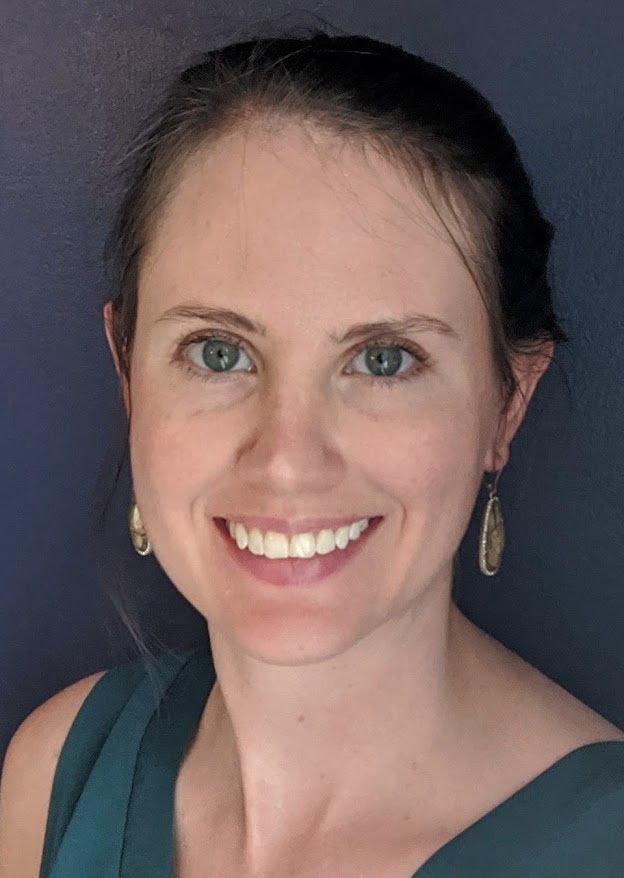
As a senior biomedical informatics program officer of the NCI Data Ecosystems Branch, I lead a team of research professionals and support staff within the Cancer Research Data Commons (CRDC). We collaborate in developing and implementing strategies focused on the creation and ongoing support of large-scale data sharing, management, and analysis tools to accelerate NCI-funded scientific research. My current research interests include advancing the capabilities of artificial intelligence for health research and building data capacity and infrastructure by securely and appropriately linking health-related data across federated environments.
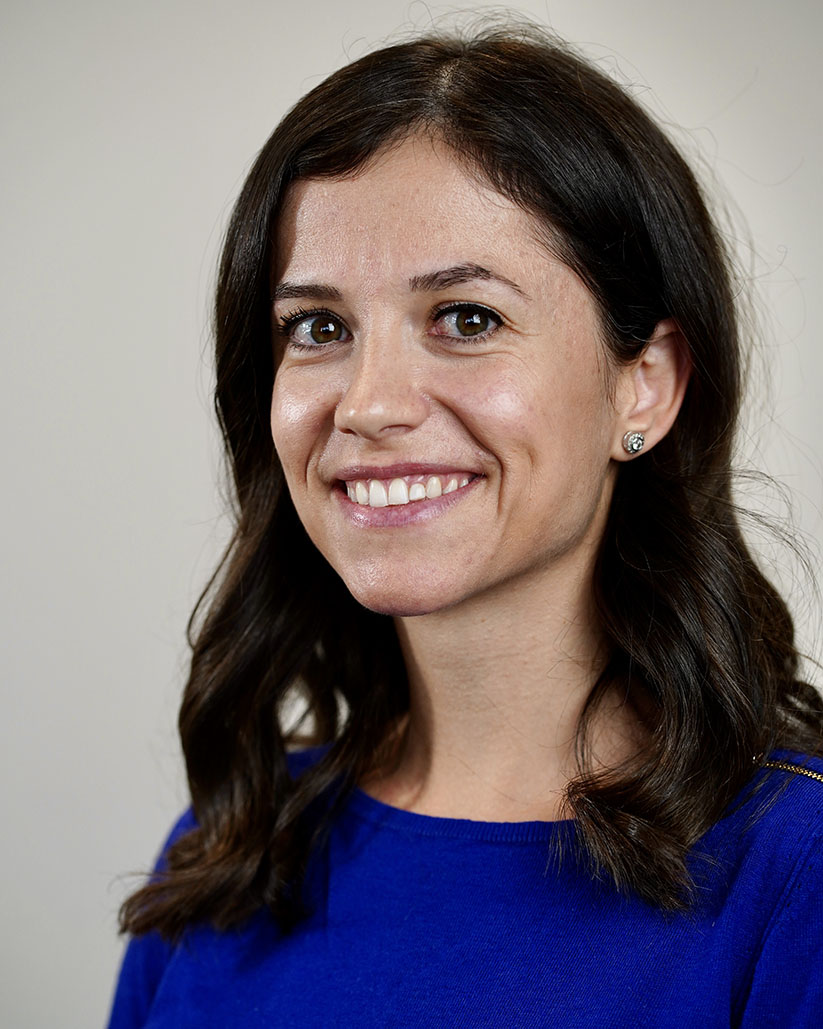
Ina Felau is a Program Officer in the Informatics and Data Science Program (IDS), at the Center for Biomedical Informatics & Information Technology (CBIIT), NCI. In her current role, Ina supports the NCI Cancer Research Data Commons (CRDC) contributing to governance and sustainability activities; developing and implementing strategies to facilitate data sharing through the CRDC Submission Portal; as well as keeping the community informed and engaged on CRDC developments. Prior to joining CBIIT, Ina spent the last decade with The Cancer Genome Atlas (TCGA) Program Office as the Genome Data Analysis Network (GDAN) Program Manager, leading programs/studies through the Genome Characterization Pipeline, as well as managing disease-specific and pan-cancer Analysis Working Groups (AWGs).

Dr. Greenspan is a Biomedical Informatics Program Director in NCI's Center for Biomedical Informatics and Information Technology. She serves as the NCI federal program lead for the NCI-Department of Energy (DOE) Collaboration, which applies artificial intelligence (AI) approaches and advanced computing to specific areas of cancer research - details at computational.cancer.gov. She supports predictive oncology and computational modeling projects and activities across NCI/NIH and other federal agencies, including the CBIIT AI and High Performance Computing Working Group, the trans-NCI AI Working Group, and the NITRD Digital Twin Fast Track Action Committee. Dr. Greenspan is especially interested in the transparent and ethical application of AI approaches to cancer research.

Dr. Jaime M. Guidry Auvil, the Director of the Office of Data Sharing (ODS) within the National Cancer Institute (NCI), oversees the NCI strategy and approach to development, interpretation and implementation of data sharing and public access policies in cancer research. Dr. Guidry Auvil has worked with NIH leaders to develop policy language and hone guidance to maximize the benefits of federally-supported scientific research products for the wider community. Dr. Guidry Auvil has led critical, high profile data sharing initiatives for NCI and NIH, including large-scale pediatric cancer research through Therapeutically Applicable Research to Generate Effective Treatments (TARGET) initiative, Gabriella Miller Kids First Pediatric Research Program, and current flagship program for NCI, the Childhood Cancer Data Initiative (CCDI).
Dr. Guidry Auvil is well-published and provides expertise in optimizing data for cancer research as part of several advisory committees within and across United States federal agencies and international organizations. Dr. Guidry Auvil has held scientific research and regulatory positions in industry, academia and government focusing on healthcare biobanking for infectious disease and cancer, as well as research in mental health, addiction and post-traumatic stress. Dr. Guidry Auvil received her doctorate in Tumor Biology from Georgetown University, where she further holds a patent for a small molecule inhibitor targeting adhesion proteins in bone cancer metastases.

Dr. Kibbe is the inaugural NCI deputy director for data science and strategy, working across NCI, NIH, and with other agencies, academia, and industry to define the data science strategy for cancer research. Previously, he was the Vice Chair and Professor of Biostatistics and Bioinformatics in the School of Medicine at Duke University. His research interests include data representation for clinical trials, especially improving the computability and interpretability of biomarker and eligibility criteria and data interoperability between medical records and decision support algorithms. He has been a proponent for open science and open data in biomedical research and helped define the data sharing policy for the NCI Cancer Moonshot program. Jointly with Sorena Nadaf, they founded the Cancer Informatics for Cancer Centers (Ci4CC.org) society. He also co-leads the NCI Childhood Cancer Data Initiative.
Dr. Erika Kim is a Senior Biomedical Informatics Program Officer in the NCI Data Ecosystems Branch. She leads a team of research professionals and support staff within the Cancer Research Data Commons (CRDC). Her team collaborates in developing and implementing strategies focused on creating and ongoing support of large-scale data sharing, management, and analysis tools to accelerate NCI-funded scientific research. Dr. Kim's current research interests include the development of interoperable, multi-modal biological databases leveraging innovative software approaches and building accessible cloud applications to facilitate collaboration among researchers at all stages of their careers to perform large-scale, multi-modal analysis.
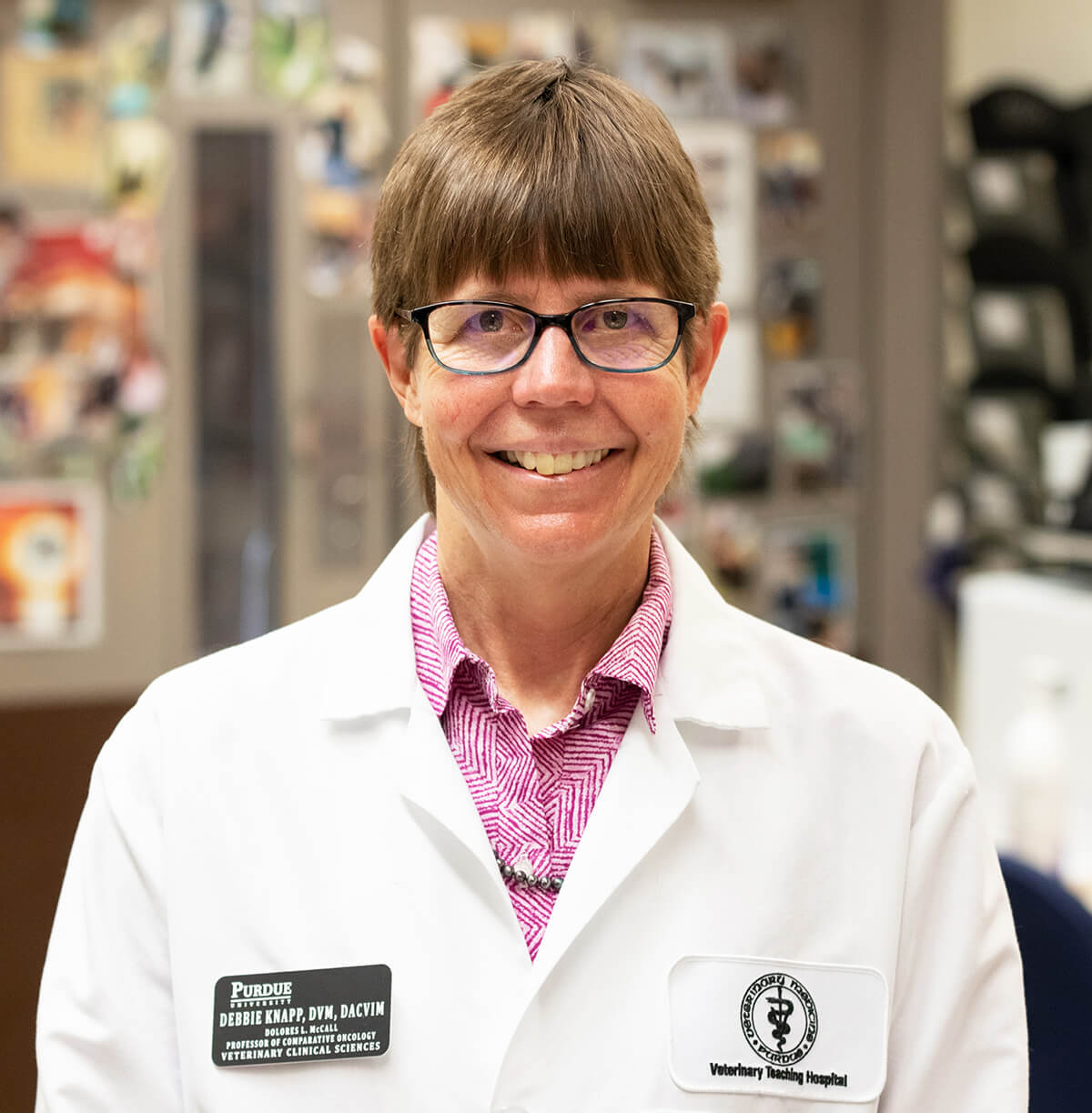
Deborah W. Knapp, DVM, is the Dolores L. McCall Professor and Distinguished Professor of Comparative Oncology in the Dept. of Veterinary Clinical Sciences at Purdue University. She earned her BS degree from North Carolina State University in 1980, DVM from Auburn University in 1983, and MS/Veterinary Medical Oncology Residency Certificate from Purdue University in 1988. After post-doctoral research in cancer pharmacology and tumor immunology, she joining the Purdue faculty in 1990. Dr. Knapp directs the Werling Comparative Oncology Research Center (WCORC) in the College of Veterinary Medicine, and is on the senior leadership team in the NCI-Designated Purdue University Institute for Cancer Research. Her work is conducted at the interface of studies at the bench, animal model work, and translation of important findings to humans. Dr. Knapp’s research is strongly focused in invasive urinary bladder cancer in which the naturally-occurring form of the cancer in dogs serves as a highly relevant model for the human condition, and she is nationally and internationally known for work defining and using this model. Her current research in invasive bladder cancer includes work on prevention, gene-environmental interactions, early detection and intervention, targeted therapies, and novel immunotherapies. She also chairs the Steering Committee for the National Cancer Institute’s (NCIs) Integrated Canine Data Commons, and serves on the Steering Committee for the NCI-Supported Pre-medical Cancer Immunotherapy Network for Canine Trials.

Dr. Daoud Meerzaman is the Branch Chief of the Computational Genomics and Biomedical Informatics Branch (CGBB) at the National Cancer Institute (NCI). In this role, Dr. Meerzaman leads efforts to provide bioinformatics analysis support for clinical and translational research conducted by NCI scientists, as well as major NCI initiatives, including the Cancer Moonshot projects.
Dr. Meerzaman has an extensive publication record and serves as both editor and invited reviewer for numerous peer-reviewed scientific journals. Prior to his role at NCI, he was a research scientist at Children’s National Medical Center in Washington, D.C. and participated in a joint fellowship program at the University of Maryland, Baltimore, and Johns Hopkins University.
Dr. Meerzaman earned both his bachelor's degree and doctorate from George Washington University in Washington, D.C., where he currently holds an adjunct faculty position. He teaches a course on Cancer Biology and the Molecular Mechanisms of Cancer.
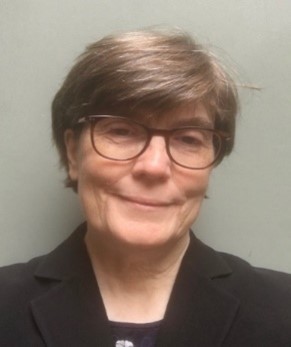
Dr. Mooney received her medical degree from the University of Chicago Pritzker School of Medicine in Chicago and her general surgical training at the Dartmouth-Hitchcock Medical Center in Lebanon, New Hampshire. She completed her Surgical Oncology fellowship training at the Roswell Park Cancer Institute in Buffalo, New York and also holds a Masters of Science degree in Management from the Massachusetts Institute of Technology in Cambridge, Massachusetts.
Dr. Mooney joined the US National Cancer Institute in 2002 as Head of Gastrointestinal and Neuroendocrine Cancer Therapeutics in the Clinical Investigations Branch in the Cancer Therapy Evaluation Program (CTEP) and became the Associate Director of CTEP in April 2020. In her capacity as the CTEP Associate Director, she has oversight and coordination responsibilities for the programmatic, financial, and administrative functions for a broad, multidisciplinary, clinical research effort to coordinate and conduct phase 1 through phase 3 clinical trials testing new therapies and precision-medicine, multi-modality, approaches for cancer treatment in national clinical trials network programs covering over 1,800 sites and accruing over 20,000 patients annually in the US and internationally. She also serves as the Institutional Official for the NCI CIRB covering several NCI-supported extramural clinical trials network programs

Dr. Schultz obtained a PhD in Biochemistry from Freie Universität Berlin. The PhD research was conducted at the University of Texas Southwestern Medical Center in Dallas, TX, focused on the investigation of gene expression patterns in gametogenesis using DNA microarrays. He completed his postdoctoral training in the Department of Computational Biology at MSK, conducting high-throughput siRNA screens to identify components of the TGF-beta pathway. Since 2008, his work has focused on cancer genomics.
The research of the Schultz laboratory focuses on identifying the genomic alterations that underlie different types of cancer. By applying existing or novel computational methods to large scale cancer genomics data sets, the lab aims to better understand the complex mechanisms at the gene and at the pathway level that drive tumor progression, with the ultimate goal of identifying targeted therapeutic options for cancer patients. Dr. Schultz is engaged in collaborations with multiple investigators at MSK. He has also made significant contributions to several projects of The Cancer Genome Atlas (TCGA), The Human Tumor Atlas Network (HTAN), and AACR Project GENIE. He has a particular interest in enabling discoveries by developing software tools and databases for the visualization and analysis of clinics-genomic data, and he co-leads the development of the cBioPortal for Cancer Genomics, a web-based resource for the analysis of complex cancer genomics data, and of OncoKB®, MSK's precision oncology knowledge base. He also leads the Cancer Data Science Initiative at MSK, which aims to make real world data from cancer patients more easily interpretable and accessible for research purposes.

Lalitha K. Shankar, MD, PhD, is at the Cancer Imaging Program at the National Cancer Institute, at the National Institutes of Health in Bethesda, MD. Since joining NCI in 2003, she has served as an Advisor to the Associate Director of the Division of Cancer Treatment and Diagnosis. She is the Chief of the Clinical Trials Branch and the Acting Associate Director of the Cancer Imaging Program. Her research interests have been both in the role of functional and molecular imaging in the diagnosis and treatment of cancer, as well as evaluating the performance characteristics of imaging modalities for optimal use in the management of the cancer patient. Her work involves establishment of and monitoring of clinical trials to evaluate imaging tracers and techniques, which aim to improve the prevention, diagnosis and treatment of cancer. She provides imaging expertise for trials of cancer diagnostics and therapeutics sponsored by NCI in the clinical trial networks such as NCTN and NCORP. She is the program lead for the Clinical Imaging Steering Committee and The Cancer Imaging Archive. She serves on the RECIST and RANO committees. She has served on FDA’s Medical Imaging Drug Advisory Committee. She serves on the advisory committees of several trans-European biomarker initiatives. She is the recipient of several NIH and NCI Director Awards and is a Fellow of the Society of Nuclear Medicine and Molecular Imaging.
Dr. Lalitha K. Shankar received her medical degree in Bangalore University, India and received her MS and PhD in Radiation Sciences at Hahnemann University, Philadelphia. She then trained in clinical Nuclear Medicine and completed fellowships in Positron Emission Tomography and Theranostics at the University of Pennsylvania in Philadelphia.

Dr. Erin Siegel serves as Associate Director of the Epidemiology and Genomics Research Program (EGRP) for the National Cancer Institute's (NCI) Division of Cancer Control and Population Sciences (DCCPS). EGRP is the largest funder of cancer epidemiologic research worldwide; its focus is to support research in human populations to understand determinants of cancer occurrence and outcomes.
Prior to joining NCI in June 2024, Dr. Siegel was a Senior Member in the Departments of Cancer Epidemiology and Gastrointestinal Oncology at the Moffitt Cancer Center and Research Institute. Dr. Siegel had an administrative leadership position as the inaugural Scientific Director of Moffitt’s Non-Therapeutic Research Office, a unique office dedicated to supporting the conduct of observational and cancer epidemiology studies. Dr. Siegel has a wealth of experience building and leveraging patient cohorts and biorepositories to advance high-impact team science. She was a (Multiple) Principal Investigator of the ColoCare study, a large, multi-institutional, cohort study investigating outcomes among colorectal cancer patients. She was a co-investigator on several NIH research project grants (R01) that leveraged the infrastructure of the cohort to identify prognostic and predictive proteomic and metabolomic biomarkers of CRC recurrence, identify metabolomic and genomic predictors of cancer-related fatigue, and examine the association of body composition on CRC outcomes. In addition, Dr. Siegel was instrumental in leading and providing strategic direction of Moffitt’s institutional biobanking protocol – the Total Cancer Care Protocol (TCC) – for over 10 years and served as PI from 2021 to 2024. She held leadership roles in the Oncology Research Information Exchange Network (ORIEN) since 2014, most recently as its Steering Committee Chair.

Dr. Dinah Singer is the Deputy Director for Scientific Strategy and Development of the National Cancer Institute (NCI), National Institutes of Health (NIH) and a Senior Investigator and Chief of the Molecular Regulation Section of the Experimental Immunology Branch, NCI. From 1999 until 2019, she served as the Director of the NCI Division of Cancer Biology. Currently, Dr. Singer also serves as the Acting Director of the Center for Strategic Scientific Initiatives and oversees NCI’s Center for Research Strategy, the Center for Cancer Training, and the Center to Reduce Cancer Health Disparities. Dr. Singer’s research interests are in regulation of gene expression and molecular immunology.
Dr. Singer has provided leadership and support for many NCI programs. She co-chaired the 2016 Blue Ribbon Panel of the Cancer Moonshot and continues to lead and manage implementation of the Cancer Moonshot. Dr. Singer led the formation of NCI’s Cancer Grand Challenges partnership with CRUK. She initiated and provides oversight for NCI’s Serological Sciences Network, the nation’s largest coordinated effort to study the immune response to COVID-19.
Dr. Singer received her B.S. from the Massachusetts Institute of Technology and her Ph.D. from Columbia University. She serves on various scientific and editorial boards, is a member of the American Association of Cancer Research and American Association of Immunologists and has received numerous awards.

Dr. Connie Sommers is a Program Director in the ImmunoOncology Branch (IOB), Developmental Therapeutics Branch, Division of Cancer Treatment and Diagnosis, NCI. She has a grant portfolio focused on preclinical immunotherapy research including checkpoint inhibitor immunotherapy, adoptive cellular immunotherapies, preclinical models of immunotherapy, canine immunotherapy, synthetic biology, nanotechnology, and combination cancer therapies. She is on the executive committee of the Integrated Canine Data Commons. Prior to coming to the IOB, she was a Staff Scientist in the NCI intramural program with expertise in genetic mouse modeling to study T cell signaling. Prior to focusing on T cell biology, she researched breast cancer and pioneered the concept of EMT in breast cancer.

Pothur Srinivas, PhD, MPH, is the deputy associate director of NCI’s Epidemiology and Genomic Research Program (EGRP). He provides support and expertise to EGRP’s associate director and assists in implementing administrative and scientific strategic plans and enhance collaborations across the Division of Cancer Control and Population Sciences (DCCPS), NCI and NIH. He currently leads the development of a Populations Sciences Data Commons to sustainably host and share data derived from studies focused on population sciences.

As a Data Scientist in the Data Ecosystems Branch, my focus is on AI and medical imaging in support of the Imaging Data Commons (IDC) and the Cancer Research Data Commons (CRDC). I oversee the IDC and two related projects: Medical Imaging De-Identification (MIDI) and Model Hub. MIDI is a project to develop a pipeline for removing Personally Identifiable Information (PII) and Personal Health Information (PHI) from DICOM formatted medical imaging files. Model Hub is a repository for AI models that process medical imaging files in DICOM format to generate either features also in DICOM format or quantitative outputs such as classifications. IDC is directly impacted by the MIDI and Model Hub projects. MIDI will provide a mechanism for validating that DICOM files submitted to IDC have been properly de-identified. Model Hub stores AI models which can or have been run on IDC imaging files to produce annotations which are or can also stored in IDC. As a computer scientist, bioinformatician, and computational biologist, my research interests focus on cancer, infectious diseases, biological databases, imaging, AI, cloud applications, genome assembly, pan-genome analysis, and large-scale genomic analysis. I have worked for more than thirty years in the field of bioinformatics. My educational training in electrical engineering and computer science with a Ph.D. in learning in neural networks provided a strong basis for my transition to bioinformatics. My postdoctoral training has broadened my grasp of biology and large scale analysis of genomics, proteomics, and related fields.

Dr. Ratna Rajesh Thangudu is the Director of Bioinformatics at ICF, where he leads data commons initiatives that align with the National Cancer Institute’s (NCI) mission to accelerate cancer research. He currently manages the Proteomic Data Commons (PDC), a key component of the Cancer Research Data Commons (CRDC), and works closely with other CRDC teams to ensure seamless integration of imaging, genomic, and proteomic data resources. With deep expertise in developing and deploying cloud-based platforms, Dr. Thangudu specializes in large-scale, data-driven solutions that optimize data reuse and enable high-throughput analysis of multi-omic datasets.

Mr Alastair Thomson serves as the Acting Director for Data Innovation at the Advanced Research Projects Agency for Health (ARPA-H) where he is responsible for the ARPA-H data strategy in support of ARPA-H’s scientific programs. Mr Thomson co-leads the ARPA-H Biomedical Data Fabric Toolbox program which is seeking to improve interoperability and discoverability of biomedical data using AI, and acts as an advisor in biomedical data and AI to ARPA-H’s Program Managers. He previously served as Chief Information Officer at the National Heart, Lung, and Blood Institute at NIH where he led the development of the NHLBI’s BioData Catalyst cloud-based data and analytics platform along with the data strategy for the RECOVER Long COVID research program. He co-leads the Global Alliance for Genomics and Health’s Implementation Forum which provides support to international data platforms by reducing the barriers to entry for implementors of GA4GH’s genomic interoperability standards. He has had a diverse career working including co-founding a computer animation company (Animation Research Limited, working is television production, and serving as the inaugural director of the University of Otago Computer Science Applied Research Center. He holds degrees in Psychology and Computer Science from the University of Otago in Dunedin, New Zealand.

Dr. Topaloglu is a clinical research informaticist who has been focusing on creating a semantically interoperable clinical research solutions with ontologies, and other standards such as Fast Health Interoperability Resources (FHIR). His research involves semantic research data frameworks that includes standard based data collection, Natural Language Processing (NLP) and privacy preserving Federated Learning (FL). He also is interested in creating research informatics roadmaps, provide strategic planning that encompasses enterprise data warehousing, Data Governance, and participation to the data sharing networks and involved with AACR GENIE and the National COVID Cohort Collaborative (N3C). He currently serves as the Chief of the Clinical and Translational Informatics Branch at the National Cancer Institute where he oversees the biomedical informatics efforts for several NCI clinical research endeavors, including the NCI Precision Medicine Initiatives, the Clinical Trials Reporting Program, and the strategic roadmap development. He also leads NCI’s Semantic Infrastructure (i.e. Enterprise Vocabulary Service [EVS] and cancer Data Standards Repository [caDSR]) and Real-World Data/Evidence (RWD/RWE) programs as well as several Artificial Intelligence (AI) efforts. Additionally, he provides data science expertise for these programs and collaborate closely with bioinformatics and data ecosystem initiatives. Previously, he was the Associate Director for the Center for Biomedical Informatics, CTSI Informatics Program, and the Wake Forest Baptist Comprehensive Cancer Center. He was also co- Director of the Bioinformatics Shared Resource for the Wake Forest University School of Medicine where he is currently an adjunct faculty.

Dr. Wang is currently a biomedical informatics project manager at the Center for Biomedical Informatics and IT (CBIIT), National Cancer Institute (NCI), developing and managing a few large scale genomic and clinical data management systems. He is the federal lead for NCI’s Genomic Enclave. He also serves as the Contracting Officer’s Representative for Clinical Reporting and Research Informatics (CRRI) and Clinical Trials Reporting Program (CTRP). Prior to that, he was a biomedical informatics specialist at Center for Cancer Genomics, NCI, serving as the program director for NCI’s Genomics Data Commons (GDC) from 2014 to 2022. From 2012 to 2014, he served as the liaison between The Cancer Genome Atlas (TCGA) program office and International Cancer Genome Consortium (ICGC) and was responsible for sharing data between TCGA and ICGC.
Before joining NCI, Dr. Wang was a senior bioinformatics scientist at the Microarray Core Facility, U.S. Military HIV Research Program from 2003 to 2011. He developed a web-based HIV recombinant detection tool and published extensively on data analysis, visualization, and analytic algorithm development. He is a hands-on data analyst and computer programmer.
Dr. Wang received his Ph. D. in Genetics from University of Idaho in 2000, M.S. in Computer Science from Southeastern University (Washing, D.C.) in 2002, and Bioinformatics Postdoc training from National Cancer Institute in 2003. He is a subject matter expert in cancer genomics, data visualization & exploration, and data harmonization & integration. Recently, he is also interested in applying LLM/GPT for clinical data abstraction and supporting natural language querying.

Mike Warfe is a Scientific Solutions Architect for the National Cancer Institute's Cancer Research Data Commons (CRDC). With a strong background in research computing, Mike specializes in designing and implementing innovative infrastructure solutions to support cutting-edge cancer research.
Previously, as the Director of Research Computing and Cyberinfrastructure at Case Western Reserve University, Mike successfully led and managed the university's research technology initiatives. His expertise in biomedical informatics and clinical informatics has been instrumental in integrating clinical data with research protocols, contributing to the success of NIH-funded awards.
Mike is dedicated to empowering researchers with the tools and support they need to advance their work in the fight against cancer.
Jean Claude Zenklusen was born 1964 in Visp, Switzerland. He earned a Master in Sciences (Biochemistry) from the University of Buenos Aires in 1990. He received his PhD in Cancer Biology & Genetics from The University of Texas, Graduate School of Biomedical Sciences, in 1995. In 1996, he took a post-doctoral position at the National Genome Research Institute where, while participating in the Human Genome Project, he cloned two novel Tumor Suppressor Genes. From 2003 until 2009, he was the Senior Staff Scientist at the Neuro-Oncology Branch of the National Cancer Institute directing the Glioma Molecular Diagnostic Initiative and its companion data portal, Rembrandt. From 2009 until 2013, he served as the Scientific Program Director of the Office of cancer Genomics, where he oversaw a variety of large-scale projects. In August 2013 he was named as Director of The Cancer Genome Atlas, the largest-scale cancer genomics project to date. In June 2023 he was named Deputy Director of the Center for Cancer Genomics at NCI

Dr. Zhang is a Program Manager in the Office of Cancer Clinical Proteomics Research (OCCPR) at the National Cancer Institute (NCI), National Institutes of Health (NIH). She provides scientific expertise in Proteomics Data Science/Data Management, manages and oversees the grants and contracts that support proteomics data analysis, informatics and software tools, and data management activities for OCCPR’s CPTAC, International Cancer Proteogenome Consortium (ICPC), and the Applied Proteogenomics Organizational Learning and Outcomes (APOLLO) network.
Dr. Zhang holds a Ph.D. degree in Analytical Chemistry from the University of Wisconsin-Madison, and completed postdoctoral training in the Pacific Northwest National Laboratory (PNNL). Dr. Zhang has extensive experience in the proteogenomic field, especially in proteomics data management.